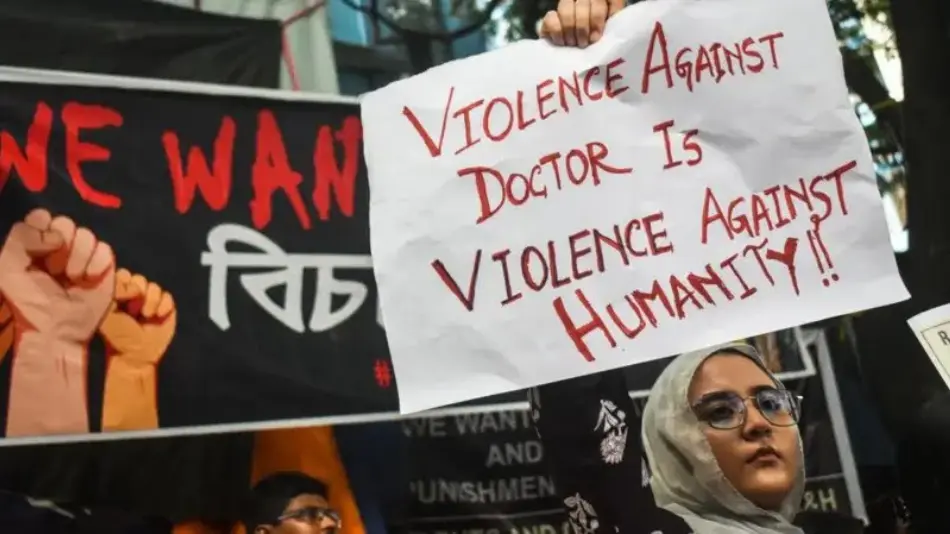The Indian Supreme Court has mandated that hospitals’ security infrastructure be improved. Following the Supreme Court’s independent hearing on the murder of a female physician at Kolkata’s RG Kar Hospital, this order was made.
The case of the rape and murder of a doctor at RG Kar Hospital came up for hearing in the Supreme Court on Tuesday. A task force on the safety of everyone connected to health services was suggested to be formed by a three-person Supreme Court bench led by Chief Justice DY Chandrachud.
According to Indian media reports, this task force will consist of nine doctors. The task force will mainly work on two issues. First and foremost, there must be an end to all forms of gender-based violence and discrimination against anyone receiving medical care. Creating a policy or procedure to guarantee a secure workplace for hospitalists, interns, and resident physicians is another. The court directed the Supreme Court task force to submit an interim report within three weeks. The final report is to be submitted within 60 days.
Apart from this, the task force will check whether there is adequate lighting and CCTV camera surveillance in all parts of the hospital and whether there is necessary security to prevent crowding or not. It has also been requested that the task force research the feasibility of running the transport system for medical professionals and physicians from 10 pm to 6 am (Indian time). The task force will ask hospitals to ensure that a certain number of people, other than patients, cannot enter the hospital. The Supreme Court declared that central forces would be in charge of RG Kar Hospital’s security.
Also Read: Supreme Court of India: No ban on female students wearing burqas or hijabs
Hospital volunteer Sanjoy Roy has been arrested as a suspect in this incident. The Sealdah court approved the polygraph test. The application filed by the Central Bureau of Investigation (CBI) in this case was approved last Monday. Polygraph tests are used to detect whether a person is lying during an interrogation.
On August 9, the body of a female doctor was found in the meeting room of the RG Kar Medical College Hospital in North Kolkata. After 36 long hours of duty, he went there to rest that night. The body of the 31-year-old female doctor was bloodied, and there were marks of injury in various parts of the body.
The autopsy revealed that the woman’s cause of death was strangulation. There were nine internal and sixteen external wounds on his body. Evidence of sexual abuse was also found.
The rape and murder of a female doctor sparked protests in the entire state, including Kolkata, the capital of West Bengal. RG Kar Hospital Principal Sandip Ghosh resigned in the face of protests. He is also being interrogated by the CBI.
The protest started by the doctors has now turned into a mass movement. Doctors and health workers, as well as the general public, protested on the road last Monday, demanding justice for this incident. Last Saturday, doctors throughout India observed a 24-hour strike in protest of this incident. This affects the medical system. Even though the strike ended last Sunday, the junior doctors and health workers in the country are still protesting. They are demanding justice and security for this incident. Yesterday, too, there were protest rallies across the state.


